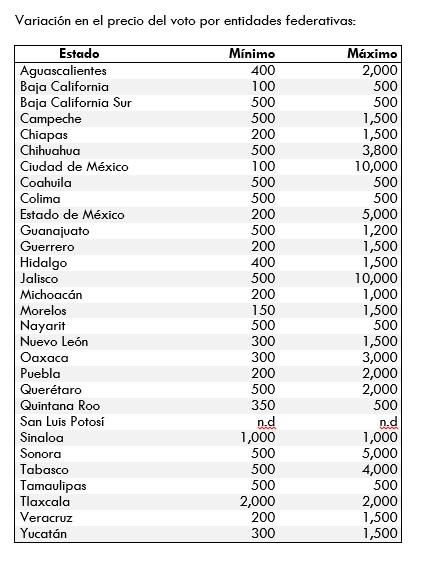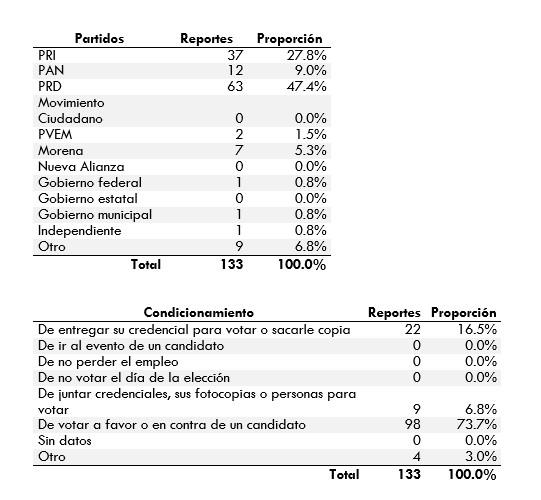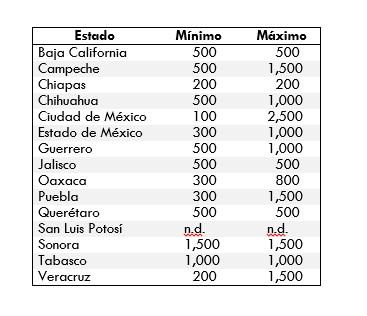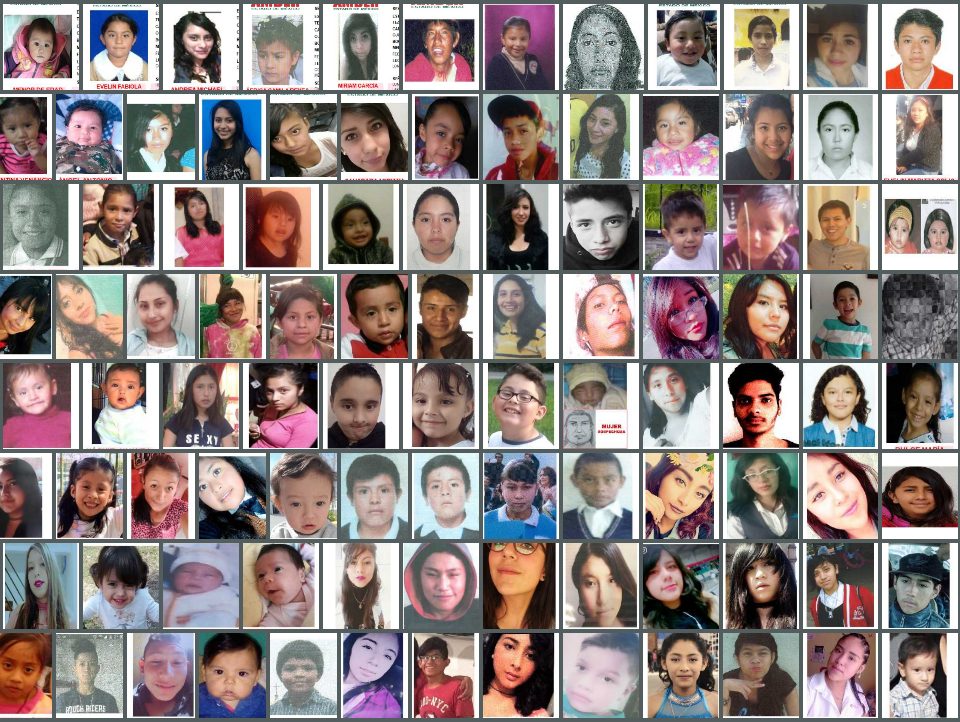
AMLO anticipates to Trump historic effort to reduce poor people migration
July 26, 2018
An Oceanic Dead Zone was reported in the northeast of the Gulf of Mexico
August 2, 2018Ballot selling costs in 2018
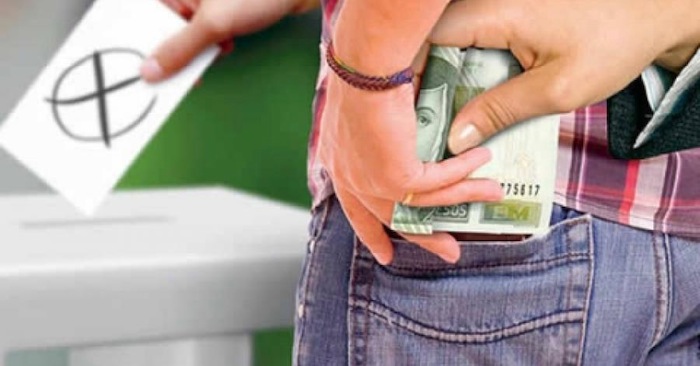
URNS & VOTES
Ballot selling costs in 2018

Nearly 15 million Mexicans refused to sell his vote to parties’ staff, over the different stages of the electoral process, according to the civil organization called ‘Acción Ciudadana Frente a la Pobreza’(citizen action against poverty) when it announced the results of various activities undertaken in order to speak out against vote coercion and buying.
The Coordinator of the civil organization Alberto Serdán pointed out the fact that different cost was registered in the buying and selling of votes depending on the city or state and the political party. In the case of the State of Mexico a vote was priced from a minimum of 200 MXN to a maximum of 5 thousand MXN, whilst in the Mexico City the range was from 100 MXN to 10 thousand MXN.
According to a reporter from the organization that collected data during the electoral process, both entities reported the highest vote buying-selling rates in Mexico.
He announced that with reports of vote coercion and buying all over the country, the complaints finished in the website www.democraciasinpobreza.mx which started with prices around 150 MXN and 10 thousand MXN.
In this regard, the NGO demanded to parties and authorities to recognize the responsible spirit of citizenship and banishing the vote coercion and buying forevermore.
‘Ahead of the electoral reforms, there is the urgency of designing a social policy linked to an inclusive, fair and open economic policy with only one objective: overcoming the causes of poverty and inequality. This would mean ending up with electoral patronage ‘the reporter pointed out.
Furthermore, he set out in detail that until last July 2nd there were registered 705 citizen reporters, from which a major percentage (61%) was concentrated between April 5 and June 4 and it was noted the fact that it was a dramatic increase of reports as the elections were nearer. A 20 % (144) occurred between June 24th and June 30th. Finally, the ballot day occurred the 19% left (133) which describes the political parties´ behavior.
The NGO declared that the exchange of money for votes was the most common of the reports with 43% of incidence. Secondly, the distribution of meals for votes with 31% of incidence. The electoral employment of social programs was in third place with 19% of incidence. Finally, the distribution of e-wallets was only reported by 7% of participants.
According to national reports, PRI was the party with the highest rates of reports with a total of 42.3%; followed by PRD with 31.3% and PAN with 12.8%.
Reviewing the totality of reports obtained all over the country, the Human Development Program ‘Pospera’ which is administrated by the Secretary for Urban Development (Sedesol) was the social program with the highest rates of reports (30%)
The 500 MXN offer per vote was the most commonly reported with an incidence of 39%, followed by offers of 1.000 MXN 1.200 MXN 200MXN and 300 MXN.
During Sunday’s ballot, the exchange of money for votes was the case with the highest rates of incidence with 71%. That day, PRD was the party that most committed this strategy with a rate of 47.4%, followed by PRI with 27.8% and PAN with 9%.
Mary Delgado
Translator: Fabián Peñaloza
In this regard, the NGO demanded to parties and authorities to recognize the responsible spirit of citizenship and banishing the vote coercion and buying forevermore.
‘Ahead of the electoral reforms, there is the urgency of designing a social policy linked to an inclusive, fair and open economic policy with only one objective: overcoming the causes of poverty and inequality. This would mean ending up with electoral patronage ‘the reporter pointed out.
Furthermore, he set out in detail that until last July 2nd there were registered 705 citizen reporters, from which a major percentage (61%) was concentrated between April 5 and June 4 and it was noted the fact that it was a dramatic increase of reports as the elections were nearer. A 20 % (144) occurred between June 24th and June 30th. Finally, the ballot day occurred the 19% left (133) which describes the political parties´ behavior.
The NGO declared that the exchange of money for votes was the most common of the reports with 43% of incidence. Secondly, the distribution of meals for votes with 31% of incidence. The electoral employment of social programs was in third place with 19% of incidence. Finally, the distribution of e-wallets was only reported by 7% of participants.
According to national reports, PRI was the party with the highest rates of reports with a total of 42.3%; followed by PRD with 31.3% and PAN with 12.8%.
Reviewing the totality of reports obtained all over the country, the Human Development Program ‘Pospera’ which is administrated by the Secretary for Urban Development (Sedesol) was the social program with the highest rates of reports (30%)
The 500 MXN offer per vote was the most commonly reported with an incidence of 39%, followed by offers of 1.000 MXN 1.200 MXN 200MXN and 300 MXN.
During Sunday’s ballot, the exchange of money for votes was the case with the highest rates of incidence with 71%. That day, PRD was the party that most committed this strategy with a rate of 47.4%, followed by PRI with 27.8% and PAN with 9%.
Mary Delgado
Translator: Fabián Peñaloza





